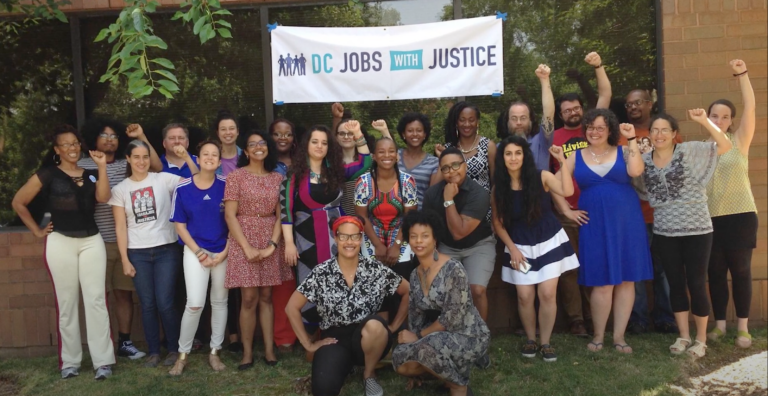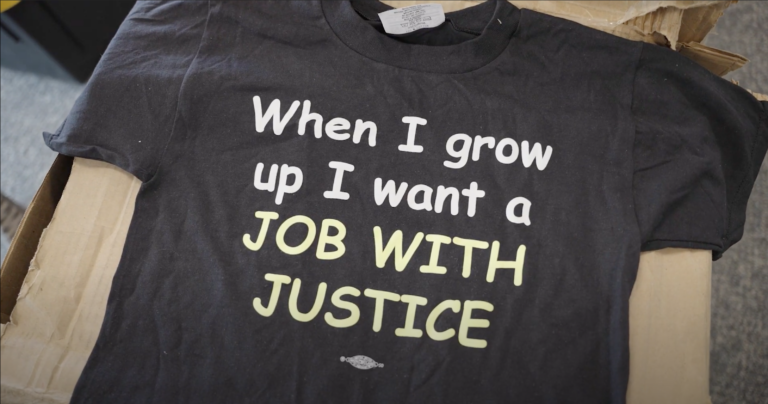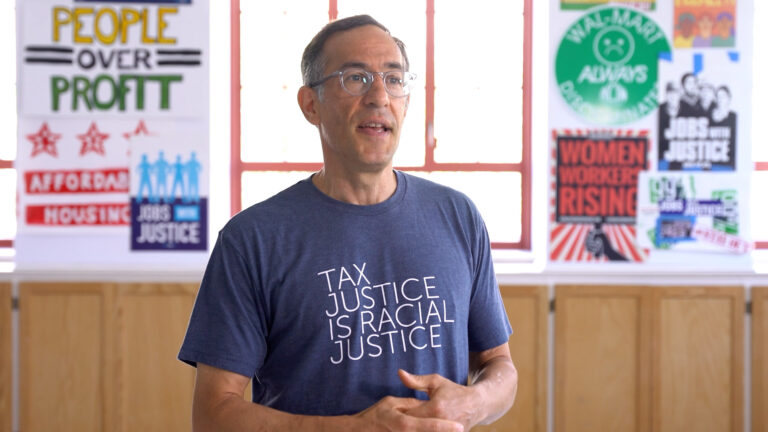How a ‘frozen heart’ helped win healthcare for janitors
Maria Naranjo
32BJ SEIU Capital Area District Leader
“In 2003 I talk about this fight for what we called health benefits for part-time workers. Most of the janitorial workers at that time in the District of Columbia were working four or five hours a night. And it was unheard of, like why would they get some kind of health benefit? People thought we were nuts for even talking about it at the bargaining table. And we decided to target a building which I think was the American Medical Association, because they owned the building and our cleaners there didn’t have health care.
And DC Jobs with Justice came out with us.
We had paid someone to carve, you know like one of those ice sculptures? It was probably this big. And it was a heart. And we were like, they have a frozen heart because they’re not giving our janitors health care. And with Jobs with Justice and with our members we went into the lobby and we said, ‘We’re dropping off this heart.’ … And I remember that DC Jobs with Justice was out there with us in the streets and were like, ‘Wow this is kinda nuts that you guys are doing this but we’re in this with you.’
Make a gift to DC Jobs With Justice in solidarity with Maria
As DC JWJ marks our 20th anniversary, your gift will ensure continued advocacy, organizing and coalition building to advance economic justice for poor, working families in our Nation’s Capital.
Watch the Full interview
Learn More About
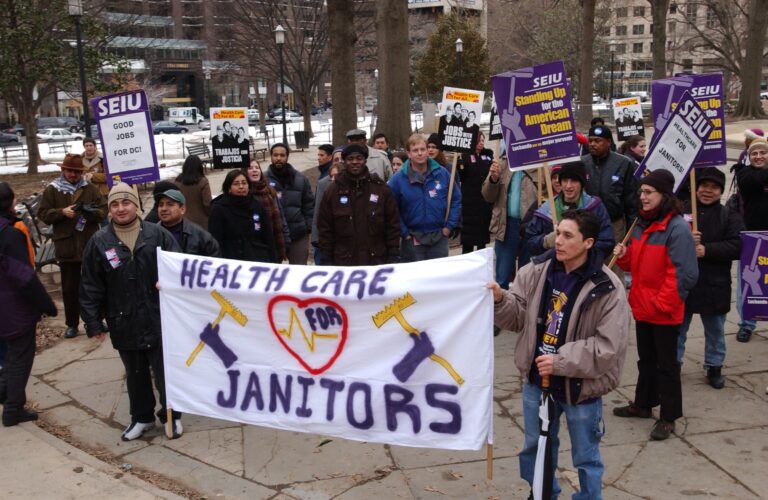
Justice for Janitors
In 2003, most of the janitorial workers in the District of Columbia were working four- or five-hour shifts per night. It was unheard of that they would get health care benefits of any kind. But workers knew that they deserved benefits and were willing to fight for them.
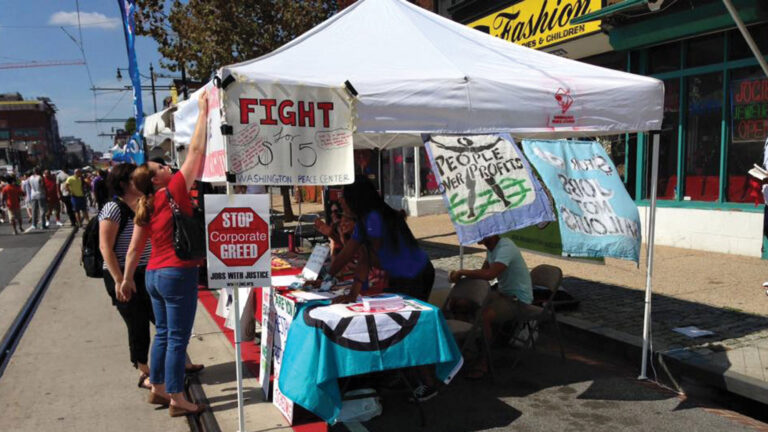
$15 Minimum Wage
Together, legislative leaders in the District, Montgomery County, and Prince George’s County worked in concert to pass minimum wage increases that would take all three jurisdictions to $15 on similar timelines.
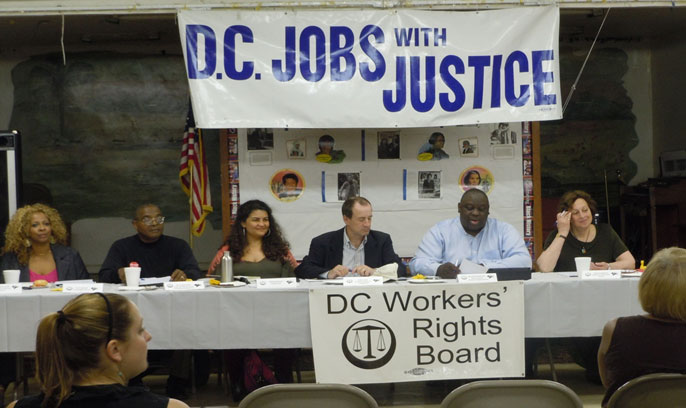
Downtown Organizing and Building Benefits Campaign
Between 2006 and 2008, DC JWJ supported the first organizing effort among commercial security officers in Washington, DC, supporting them in winning a union at the four largest companies.
